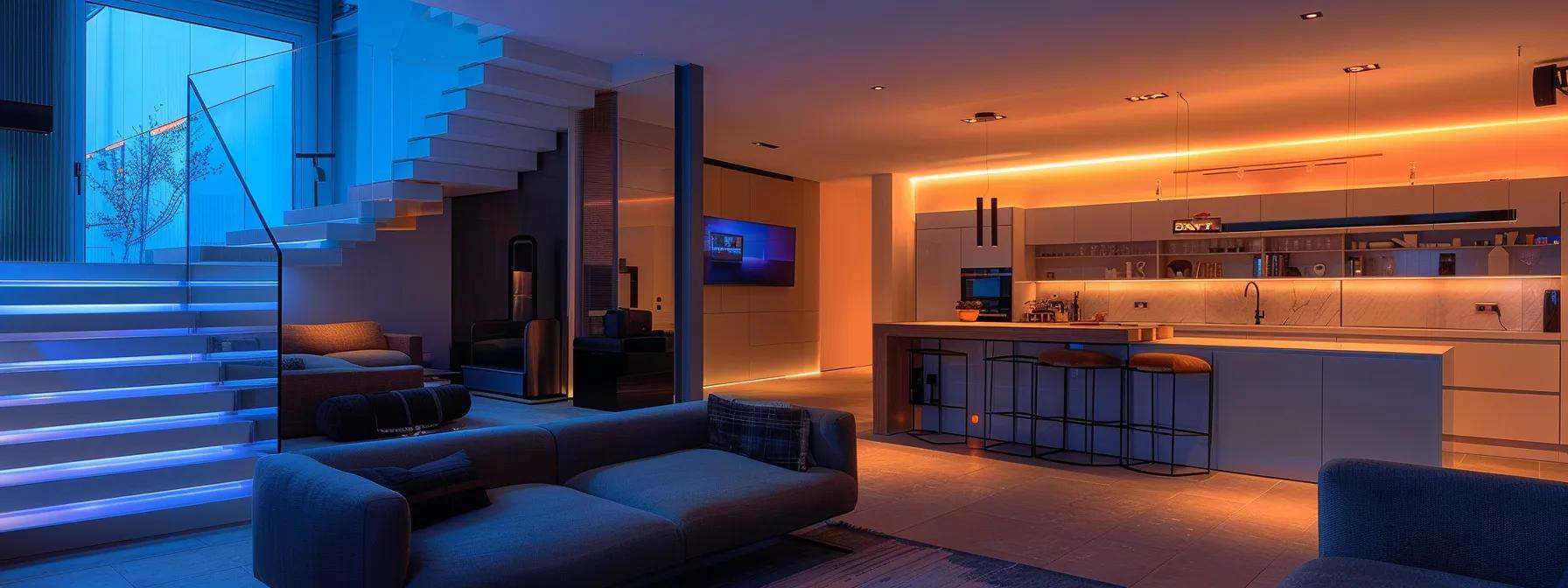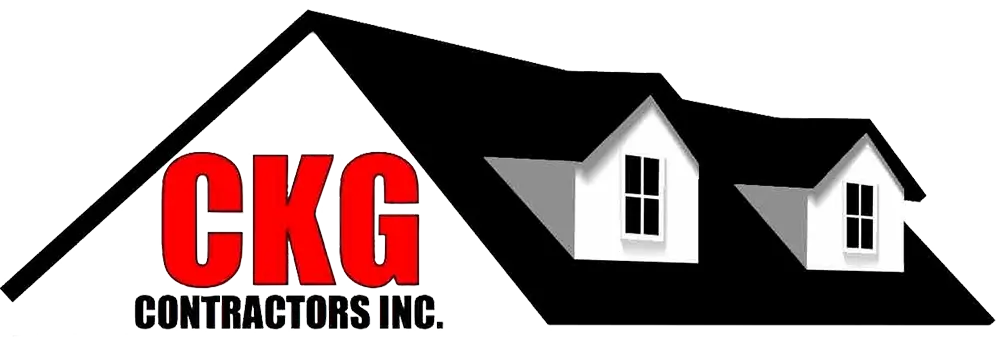
Table Of Contents:
- What Causes Window Condensation in New Jersey Basements?
- How Can You Prevent Window Condensation in NJ Basements?
- Which Types of Windows Are Best for NJ Basements to Avoid Condensation?
- How Does Basement Solutions NJ Address Window Condensation Problems?
- What Are the Costs and Benefits of Replacing Basement Windows in New Jersey?
- What Are the Most Common Questions About Basement Window Condensation?
- How Can You Maintain Basement Windows to Minimize Condensation Year-Round?
- Frequently Asked Questions
When homeowners in New Jersey notice fogging or moisture on their basement windows, it raises both aesthetic and functional concerns. At CKG Contractors, Inc., we have seen how window condensation can lead to structural damage, mold growth, and energy inefficiencies. Understanding why condensation forms and how to prevent it is essential for a healthy home environment. In this article, I share expert insights on the causes of window condensation in NJ basements and outline proven strategies—including superior window replacement in New Jersey, basement waterproofing, and advanced ventilation improvements—to significantly reduce moisture build-up. You will also learn about our comprehensive home improvement services that integrate roofing, window installation, and basement solutions for lasting quality and performance.
The problem of window condensation stems from differences in temperature and humidity between your indoor environment and the outside. With New Jersey’s fluctuating seasons and unpredictable weather, basement condensation often occurs due to cooler temperatures, high humidity, and lack of proper ventilation. In the following sections, we explore the causes, prevention methods, and practical solutions supported by our field experience at CKG Contractors.
Transitioning into the solutions, you will find guidance on window selection, moisture control techniques, and maintenance practices. Our investment in high-performance, Energy Star certified windows and advanced basement waterproofing systems has revolutionized our approach to condensation control. These solutions optimize your home’s thermal envelope while enhancing indoor air quality and energy savings. Let’s begin by understanding what causes condensation to accumulate on basement windows.
What Causes Window Condensation in New Jersey Basements?
Window condensation in New Jersey basements is the result of interactions between external environmental conditions and the interior home climate. The main causes include: • Temperature differentials between the cool basement and warm interior • High humidity levels that exceed what the basement can handle • Poor ventilation that traps moist air
When warm indoor air, which can hold more moisture, meets the cooler surfaces of basement windows cooled by surrounding soil, moisture condenses rapidly. This phenomenon intensifies if high humidity exists from inadequate dehumidification, leaky construction, or heavy household activity. Stagnant, humid air that is not properly circulated also contributes to persistent fogging. Seasonal weather changes and heavy rainfall further exacerbate these issues by driving additional moisture into the basement. In summary, the combination of temperature differences, high humidity, and poor ventilation creates ideal conditions for repeated condensation that threatens window integrity and may lead to long-term damage.
How Do Temperature Differences Lead to Basement Window Condensation?
The condensation process begins when warm, moist air contacts the colder glass of a basement window. In New Jersey, basements stay cool due to the insulating ground temperature. As indoor spaces warm up, their air can hold more moisture. When this moist air meets the cold surface of the window, which is often below the dew point, water vapor condenses into liquid droplets. For example, if your basement is maintained around 65°F and adjacent heated living spaces are at 70°F or higher, the cooler window glass can trigger condensation—especially if the window is single glazed or poorly insulated. Repeated cycles of condensation and evaporation may damage window frames and create a damp, mold-prone environment. Upgrading to energy-efficient windows minimizes these temperature differentials and reduces the likelihood of condensation.
Why Does High Humidity Increase Condensation on Basement Windows?
High humidity in basements means more moisture is available to condense when temperatures drop. In environments where indoor humidity frequently exceeds 60%, even a slight temperature drop can lead to significant condensation on cold window surfaces. Basements, often being below-ground, naturally have higher moisture levels due to limited airflow and often insufficient dehumidification. When relative humidity rises, surfaces more readily reach their dew point. This not only triggers condensation but also creates conditions favorable for mold and mildew. Upgrading windows to materials with superior thermal performance, along with installing dehumidifiers and improving airflow, helps control indoor humidity. At CKG Contractors, our energy-efficient window replacement services incorporate such standards to minimize humidity-induced condensation.
How Does Poor Ventilation Contribute to Window Condensation?
Poor ventilation means that moist, stale air remains trapped in basements. When there is no effective exchange with drier outdoor air, humidity levels build up, and any cold surface—such as a basement window—becomes a prime target for condensation. Older basements often lack modern ventilation systems, and even basic efforts such as opening a window can prove inadequate if overall airflow remains low. Moisture from daily activities, including cooking and showering, accumulates over time if not properly vented. Improving ventilation through extractor fans, air exchangers, or natural cross-ventilation can help disperse humid air and lower the overall moisture level, reducing condensation on basement windows.
How Can You Prevent Window Condensation in NJ Basements?

Preventing window condensation in NJ basements involves a comprehensive approach that tackles both the symptoms and the root causes. Key strategies include:
• Upgrading to energy-efficient windows: These windows provide superior insulation with features such as double glazing and advanced materials (e.g., vinyl) that help maintain consistent interior surface temperatures. Research shows that Energy Star windows can reduce condensation formation by over 40% compared to traditional single-pane models.
• Implementing basement waterproofing: By sealing cracks, installing sump pumps, and using vapor barriers, waterproofing helps keep moisture out of basement walls and floors, reducing overall humidity.
• Enhancing ventilation: Installing exhaust fans or whole-house ventilation systems circulates air and reduces humidity build-up. In basements, low-flow ventilation systems or dehumidifiers are particularly effective.
These combined methods not only address immediate condensation issues but also offer long-term benefits for energy savings and indoor air quality.
Why Is Energy-Efficient Window Replacement Key to Reducing Condensation?
Energy-efficient window replacement directly targets temperature disparity—a main cause of condensation. Modern windows with double or triple glazing maintain a more consistent surface temperature, preventing the window from falling below the dew point of indoor air. High-performance windows made with materials like vinyl or fiberglass and equipped with low-emissivity coatings reflect interior warmth back inside, keeping the glass warmer during cold periods. In addition to reducing condensation, these windows lower heating costs by retaining heat, making them an investment in both comfort and energy efficiency.
How Does Basement Waterproofing Help Prevent Window Condensation?
Basement waterproofing controls the source of excessive moisture that fuels condensation. Properly sealed and insulated walls and floors reduce the number of moisture entry points, thereby lowering indoor humidity levels. Techniques include applying interior/exterior sealants, installing drainage systems, and using vapor barriers. By reducing the overall moisture load, waterproofing not only lessens condensation on windows but also protects the structural integrity of the basement and minimizes the risk of mold growth. Combining waterproofing with energy-efficient window replacement creates a dual barrier against moisture and temperature fluctuations.
What Ventilation Improvements Reduce Moisture Around Basement Windows?
Effective basement ventilation is crucial for controlling humidity. Solutions include: • Installing exhaust fans or whole-house ventilation systems • Using dehumidifiers specially designed for basement environments • Providing passive ventilation through strategically placed air vents or bricks • Incorporating energy recovery ventilators (ERVs) that transfer heat from stale indoor air to incoming fresh air
Regular maintenance of these systems—such as cleaning filters and ensuring unobstructed air paths—ensures they function efficiently. Improved air circulation prevents moisture from lingering, which directly reduces the likelihood of condensation on window surfaces.
Which Types of Windows Are Best for NJ Basements to Avoid Condensation?
Choosing the right window type is critical to preventing condensation in basement areas. The best windows feature: • Superior insulation properties with multiple glazing layers • Low-E coatings that minimize heat loss • Efficient materials such as vinyl, fiberglass, or modern composites • Energy Star certification confirming their performance standards
For example, casement windows, which swing outward, provide a tighter seal against the elements and reduce air leakage better than traditional double-hung windows. While double-hung windows offer a classic look, they may not seal as effectively, increasing the risk of condensation. Vinyl windows are preferred for their durability and low thermal conductivity, whereas wood windows require more maintenance to prevent moisture penetration. Energy Star certified windows offer optimal thermal performance and help maintain consistent interior temperatures, further reducing condensation risks.
What Are the Benefits of Casement vs. Double-Hung Basement Windows?
Casement windows seal tightly with a continuous sash, minimizing air leaks and preventing the formation of cold spots that trigger condensation. Their design also promotes better cross-ventilation, improving indoor air quality. In contrast, double-hung windows typically have gaps between sashes, allowing cold air to contact the interior glass and increasing condensation risks. Homeowners in high humidity areas have noted improved performance and reduced moisture issues after switching from double-hung to casement windows.
How Do Window Materials Like Vinyl and Wood Affect Condensation?
Window frame materials significantly influence condensation control. Vinyl windows, with their low thermal conductivity and non-porous nature, resist moisture penetration and require minimal maintenance, making them highly effective in basements. Wood windows, although attractive, can become porous over time and require frequent maintenance to prevent moisture accumulation. Fiberglass windows offer excellent thermal resistance and durability with less maintenance. Choosing the right material is essential to balancing aesthetics with performance and long-term efficiency.
Why Choose Energy Star Certified Windows for Basement Installations?
Energy Star certified windows meet stringent federal guidelines for thermal efficiency and air leakage. They typically feature double or triple glazing, argon gas fills, and low-emissivity coatings, all of which help maintain stable interior temperatures and reduce condensation. In addition to preventing moisture build-up, these windows lower heating costs, enhance overall energy efficiency, and reduce the risk of mold growth—making them a smart choice for any New Jersey basement.
How Does Basement Solutions NJ Address Window Condensation Problems?

At CKG Contractors, Inc., we partner with Basement Solutions NJ to provide a comprehensive approach to addressing window condensation. Our integrated services include expert window replacement, advanced basement waterproofing, and mold remediation. The process begins with a thorough assessment of your basement’s moisture and ventilation challenges, followed by customized recommendations for energy-efficient window upgrades, sealing techniques, and ventilation improvements.
Our window replacement services focus on installing high-performance, Energy Star certified windows designed for NJ basements. In cases where condensation has led to mold growth, our specialized mold remediation services ensure a clean, safe environment. Additionally, our waterproofing solutions shield your basement from groundwater and reduce overall humidity, creating a stable, energy-efficient space.
What Window Replacement Services Does Basement Solutions NJ Offer?
Basement Solutions NJ offers a wide range of window replacement services that cater specifically to the challenges of basement environments. Their offerings include: • Installation of energy-efficient, thermally insulated casement and double-glazed windows • Customized consultations to evaluate current window systems and basement conditions • Recommendations for additional features like low-emissivity glass or argon gas fills • Post-installation support including routine maintenance tips
These services help reduce condensation, improve energy efficiency, and increase overall comfort in your basement.
How Does Basement Waterproofing Complement Window Replacement?
Basement waterproofing and window replacement work synergistically to manage moisture. While upgraded windows reduce heat loss and condensation through superior insulation, waterproofing prevents external moisture from infiltrating the basement. Techniques such as sealing foundation walls, installing drainage, and applying vapor barriers ensure that excess moisture is kept at bay. This combined approach results in a basement that is both energy-efficient and protected against structural damage and mold growth.
What Mold Remediation Services Are Available to Prevent Health Risks?
Mold remediation is essential when persistent condensation has led to mold growth. In collaboration with Basement Solutions NJ, CKG Contractors offers a comprehensive mold remediation process that includes: • Detailed inspections to identify all affected areas • Use of HEPA-filtered air scrubbers and specialized cleaning agents • Repairs to address leaks, reset insulation, and improve ventilation • Follow-up maintenance tips and regular inspection schedules
These services not only eliminate existing mold but also prevent its return, ensuring a healthier indoor environment and protecting your home’s structural integrity.
What Are the Costs and Benefits of Replacing Basement Windows in New Jersey?
Basement window replacement is a significant investment, but the long-term benefits often far outweigh the initial costs. In New Jersey, the cost typically ranges from $500 to $1,500 per window, depending on the type, size, materials, and features (such as low-E coatings). Energy-efficient windows lower heating costs by maintaining a more consistent interior temperature, reduce maintenance costs related to mold and water damage, and enhance property value. Additionally, many homeowners find that these windows contribute to a reduced carbon footprint and improved overall home sustainability.
How Much Does Basement Window Replacement Typically Cost in NJ?
The exact cost varies based on factors such as window size, material, and installation complexity. Quality vinyl or fiberglass windows designed for energy efficiency generally cost between $500 and $1,500 each. Though the upfront cost may appear high, the long-term savings from reduced energy loss and fewer repairs can make this investment worthwhile. In some cases, improvements in insulation have resulted in energy savings increases of up to 30%.
What Energy Savings Can You Expect From New Basement Windows?
Energy-efficient windows minimize heat transfer and reduce the energy demand for heating. In colder months, upgraded windows can reduce energy consumption by 20–30%, leading to noticeable savings on heating bills. The improved thermal performance also creates a more comfortable living environment, justifying the cost of window replacement through both immediate and long-term benefits.
Are There Financing or Incentive Options for Energy-Efficient Window Replacement?
Homeowners in New Jersey may access various financing options, rebates, and tax credits for energy-efficient home improvements. Federal and state incentive programs often provide financial support for projects involving Energy Star certified windows and comprehensive basement waterproofing. Consulting with your contractor or local energy authority can help you explore these opportunities and reduce the effective cost of your window replacement project.
What Are the Most Common Questions About Basement Window Condensation?

Homeowners frequently have questions about basement window condensation, including its causes, early signs, and the effectiveness of DIY versus professional solutions. Many wonder if temporary measures like using a dehumidifier are sufficient or if professional intervention is necessary.
How Can I Tell if My Basement Window Has a Condensation Problem?
Persistent moisture droplets, fogging on the glass, and visible water stains on window frames or adjacent walls are clear signs of a condensation problem. Repeated episodes, especially during colder months, indicate that simple cleaning measures will not be enough to address underlying issues such as high humidity, poor insulation, or inadequate ventilation.
Can DIY Solutions Effectively Prevent Basement Window Condensation?
DIY solutions, such as using dehumidifiers, sealing leaks, or installing small exhaust fans, might provide temporary relief for minor condensation. However, they rarely resolve the underlying issues. For persistent condensation problems, professional services—including expert window replacement and thorough basement waterproofing—offer more lasting and effective results.
When Should I Call a Professional for Window Condensation Issues?
If condensation remains constant despite basic moisture control measures, it is time to seek professional help. Indicators include recurring water droplets, visible mold growth, peeling paint, or a noticeable decline in indoor comfort and energy efficiency. Professional assessments provide comprehensive solutions by addressing both immediate symptoms and long-term structural concerns.
How Can You Maintain Basement Windows to Minimize Condensation Year-Round?
Regular maintenance is crucial to ensuring that basement windows perform optimally and remain free from condensation. A proactive maintenance schedule includes seasonal inspections, routine cleaning, and prompt repairs to prevent the return of conditions that favor condensation.
Key maintenance practices include: • Keeping window seals intact and replacing deteriorated caulking • Regular cleaning of window sills, frames, and surrounding areas to remove dirt and residue • Inspecting and adjusting insulation during winter, and enhancing ventilation or using dehumidifiers in summer • Checking for water infiltration after heavy rains
In addition, routine maintenance of mechanical components—such as exhaust fans or energy recovery ventilators (ERVs)—is essential to ensure continuous airflow and effective moisture control. Adhering to these practices not only extends the lifespan of your windows but also supports ongoing energy efficiency and indoor air quality improvements.
What Regular Maintenance Prevents Moisture Build-Up on Basement Windows?
Annual inspections of window seals, regular cleaning of frames and sills, and timely reapplication of caulking help prevent moisture build-up. Ensuring that dehumidifiers and ventilation systems are serviced regularly is equally important in maintaining a balanced indoor moisture level.
How Does Seasonal Weather Affect Basement Window Condensation in NJ?
New Jersey’s weather variations have a significant impact on basement condensation. In winter, the considerable temperature difference between indoor heat and cold outdoor air can lead to increased condensation unless countered by energy-efficient windows. In summer, high humidity levels, especially when paired with inadequate ventilation, can also trigger condensation. Adapting maintenance and moisture control strategies to seasonal changes is essential.
What Are Best Practices for Ventilating Basements to Control Humidity?
Effective practices include installing dedicated ventilation systems such as exhaust fans or energy recovery ventilators (ERVs). Regularly cleaning these systems and using tools like hygrometers to monitor humidity levels ensures optimal performance. Combining these measures with routine window maintenance further prevents excess moisture build-up.
Frequently Asked Questions
Q: What immediate steps can I take if I notice condensation on my basement windows? A: Begin by wiping the moisture off to prevent mold growth. Check for obvious signs of leaks or gaps in the window seals. Use a dehumidifier to monitor and control indoor humidity and ensure that your basement is well-ventilated. If condensation persists, it is advisable to contact a professional for a thorough inspection.
Q: How do energy-efficient windows help reduce condensation in basements? A: Energy-efficient windows maintain a more consistent interior surface temperature through features like double or triple glazing and low-E coatings. This minimizes the temperature differential that causes moisture to condense on the glass, while improved insulation reduces cold air infiltration.
Q: Is professional basement waterproofing necessary to tackle window condensation? A: Yes, professional basement waterproofing addresses the root cause of excessive moisture by preventing water infiltration and lowering indoor humidity levels. This comprehensive approach—when combined with window replacement—creates a long-lasting solution to condensation and helps maintain better indoor air quality.
Q: What financing or government incentives are available for window replacement projects in New Jersey? A: Many New Jersey homeowners can access various financing options, rebates, and tax credits for energy-efficient home improvements. Incentive programs often favor projects involving Energy Star certified windows and comprehensive basement waterproofing. Contact your contractor or local energy authority for current information.
Q: How often should I schedule maintenance for my basement windows to prevent condensation? A: It is recommended to perform maintenance at least once or twice a year, with additional inspections after extreme weather events. Regularly review window seals, caulking, and ventilation systems to catch potential issues early and ensure optimal performance.
Before starting any window replacement or waterproofing project, planning for a routine maintenance schedule is essential. A well-planned schedule not only prolongs the life of your installations but also promotes long-term energy efficiency and improved indoor air quality.
Before installing new windows, review this table to compare the benefits. Optimized insulation properties help significantly reduce energy loss and condensation.
By comparing window options, it is clear that investing in high-performance windows offers measurable benefits in reducing condensation and energy costs. This data-driven approach highlights why choosing the right windows is a critical part of long-term maintenance and home improvement.
Maintaining high-quality basement windows is not just about preventing condensation—it is about ensuring long-term energy efficiency, safeguarding your indoor environment, and protecting your property. With the right combination of window technology, waterproofing, and proper ventilation, you can create a basement that is both comfortable and resilient against the challenges posed by New Jersey’s diverse climate conditions.




